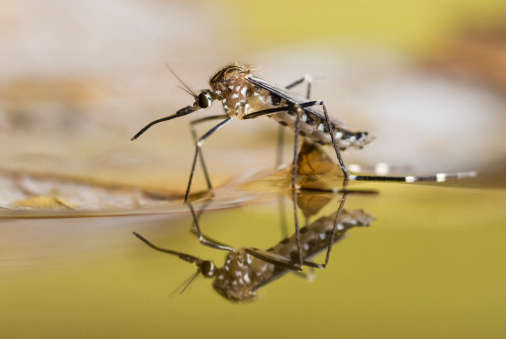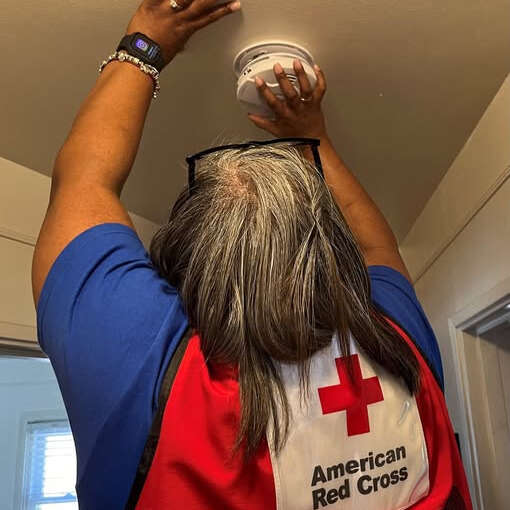
The West Nile Virus was found during Kent County Mosquito Surveillance check.
GRAND RAPIDS, Mich. (July 12, 2022) The Kent County Health Department (KCHD) has detected West Nile virus (WNV) in mosquitoes in Kent County. This is not a human case. The discovery was made by the KCHD Mosquito Surveillance Team as part of ongoing tracking that takes place throughout the county every summer. The discovery comes after testing pools of mosquitoes that were trapped by KCHD in the 49519 ZIP code. This is the first known finding of WNV in Michigan this year.
The Mosquito Surveillance Team traps large amounts of mosquitoes in various locations in Kent County. The team then collects the pools of mosquitoes and begins the process of testing the insects for the presence of WNV. The information the team gathers is shared with the municipalities where WNV is found. Those agencies can then use that information to inform their mosquito mitigation strategies.
“This discovery is important because it lets us know that this season’s mosquitoes are now carrying the virus and it could spread to humans,” said Paul Bellamy, Public Health Epidemiologist at KCHD. “It is important for people to take precautions to prevent mosquito bites as much as possible.”
Since there is no vaccine or cure for WNV, the best treatment is prevention. KCHD recommends the following measures:
- Wear a mosquito repellant that contains 10 to 35 percent DEET (read and follow product directions)
- Wear light colored clothing and stay indoors during dusk to reduce your risk of being bitten
- Remove or refresh water in bird baths, children’s wading pools, water bowls for your pets, and empty other small containers that can collect water in your yard.
More information about prevention can be found at: https://www.accesskent.com/Health/Environmental/vector.htm.
Only about 20 percent of the people infected with WNV will notice symptoms that may include headache, body aches, joint pains, and fatigue. Most people with WNV completely recover, but fatigue may linger. About 1 in 150 people infected develop severe illness that can affect the central nervous system. Recovery may take several months. Some damage to the central nervous system can be permanent. In rare instances the disease can lead to death.

 4/18/25 - List of Easter Events for the Kids
4/18/25 - List of Easter Events for the Kids
 04/15/25 - Red Cross Going Door to Door This Month
04/15/25 - Red Cross Going Door to Door This Month
 8/15/24 - Groundbreaking For New Children's Rehab Hospital
8/15/24 - Groundbreaking For New Children's Rehab Hospital
 8/14/24 - Extra Security In Byron Center
8/14/24 - Extra Security In Byron Center


